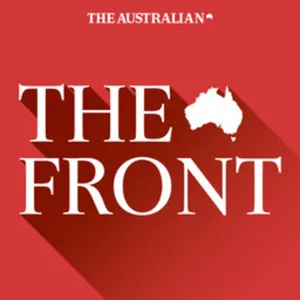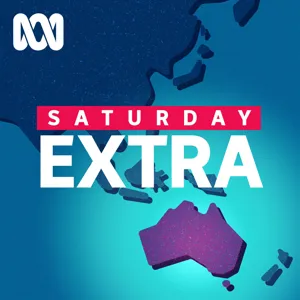Hi, Welcome to the ECS Episode of the Medibis podcast series, Phyting Words.
Angus Chapel – Medibis CEO
Dr Evan Stephens – Medibis Scientific Advisor
DISCLAIMER – THIS IS NOT MEDICAL ADVICE – THIS IS SCIENTIFIC INFORMATION AND COMMUNICATION
ECS (Endogenous Cannabinoid System) basics
All of the systems throughout your body are constantly changing and working together to keep you in balance. Your body temperature is regulated using your skin, your breath and heart rate and modulated depending on the amount of energy you are using at any given time, your nervous system is modulated, the amount of adrenalin in your blood depends on your fight or flight response, your level of fear or excitement. All of these systems need to work together, and they do this very well considering there is no interference from the occupant of the body, it all happens innately.
Research is showing that the ECS is playing a very important part in this process, perhaps even controlling, to a degree, all of the body’s systems. For a localised pain event for example, the ECS may produce higher levels of anandamide and have it delivered to the area of the body that has reported the pain response. It may also send 2AG if inflammation has been detected at an unacceptable level.
Of course, there are limits to how much of these endocannabinoids can be manufactured by the body, the same as adrenalin for example. There must also be a consideration for the spill over effect into other systems of the body that, perhaps, may start to be compromised by excessive levels of a particular compound because at the end of the day, the body’s systems should be restored back to a balanced state.
Using an integrated system of signalling, the ECS is able to not only monitor but also communicate through signalling to almost every other system in the body. This is fundamental to our homeostasis. All animals work this way, so it’s part of our magnificent design. Food and nutrients are some of the tools that the ECS uses to properly do this job, as are endo and phyto-cannabinoids and other phyto-compounds. It is microscopic and thus has evaded detected for many years and is a relatively new discovery.
Because it has only been detected and recently understood, it doesn’t yet form part of the curriculum for a general practitioner, and there are few, if any, specialists for this system of the body. We have cardiovascular specialists, endocrine system specialists and almost all the other systems in the body except the ECS. It’s a huge discovery and a new frontier for science.
So let’s go digging …….
What is the ECS?
CB1 and CB2 and Discuss specifics like TRPV1 and PPAR nuclear receptor proteins, FABP, etc.
Also, enzymes e.g. FAAH, MAGL.
TRPV1 - Wikipedia
Interactions by AEA, OD, AD.
Peroxisome proliferator-activated receptor gamma - Wikipedia
FABP1 - Wikipedia
https://en.wikipedia.org/wiki/FABP1
Fatty acid amide hydrolase - Wikipedia
Monoacylglycerol lipase - Wikipedia
Much of the research started since the 1990s and 2000s.a
8 different dietary lipids.
- Mentioned the human genome project, and the genomics era (a preamble to later talking about the endo-cannabinoidome, and the tone of the ECS – hypo or hyper states)
- Master controller
- Tone of the ECS – how… biochemical factors, environmental factors, genetic factors – examples.
ECS discovery. Why did it take so long to discover the ECS? What did we used to think was happening with homeostasis?
Molecular biology tools (roughly from the 1980s, generally biology is much more complicated than chemistry)
Hebrew University of Jerusalem, Israel.
https://en.wikipedia.org/wiki/Raphael_Mechoulam
Professor Raphael Mechoulam from the School of Pharmacology in the Faculty of Medicine at the Hebrew University of Jerusalem, is one of two winners of the esteemed Harvey Prize for his ground-breaking research in the world of medicinal cannabis. His studies in this field have given the entire world a new perspective on cannabis as a healing plant, rather than just a recreational drug.
Prof. Mechoulam was born in Bulgaria (1930), where he studied chemical engineering. After immigrating to Israel he received his M.Sc. in biochemistry from the Hebrew University of Jerusalem and his Ph.D. at the Weizmann Institute and completed his postdoctoral studies at the Rockefeller Institute in New York. In 1960 he joined the junior staff of the Weizmann Institute, and in 1985 he became a professor at the Hebrew University.
He is the first scientist to isolate plant cannabinoids, first CBD (cannabidiol) then THC (tetrahydrocannabinol) and he also is the first to discover the human endocannabinoid system, which is a complex cell-signalling system made up of receptors found throughout our entire bodies. These receptors react to plant cannabinoids to treat numerous conditions we suffer from. All living creatures except insects have an endocannabinoid system.
David (Dedi) Meiri – Behind the smokescreen of medicinal cannabis
https://www.ted.com/talks/dedi_meiri_behind_the_smokescreen_of_medical_cannabis
What does it do? How does it work?
Activated dietary lipids and similarities to phyto-cannabinoids
- Talking about stereochemistry and the Fischer lock and key principle
- Dietary fats are long chains but these chains are quite flexible
- CBD and ECS activation – complicated section – discuss.
Metabolic disease – ECS tone
- Science reproducibility, and also should discuss reductionism versus confounding variables in the omics era.
- Genetic testing can be in the hundreds of dollars, but this was shortly after talking about whole genomes
Cannabinoids
Housing cannabinoids and 500+ compounds, cannabinoids, flavonoids and terpenoids.
Aging, diet, and lifestyle effects.
Senescent cells and SASPs
Quality of life
The start low and go slow idea is not dissimilar to common dosing schedules, and this is to determine tolerability. There are some people in very low numbers who are unable to tolerate cannabis. We can measure this using genomic sequencing.
Whilst THC has many cited medicinal applications, and replicates Anandamide throughout the ECS, the Side effect of THC can be intoxication or euphoria. What we know now through research is that we can improve the bioavailability of THC by adding CBD as this p...








